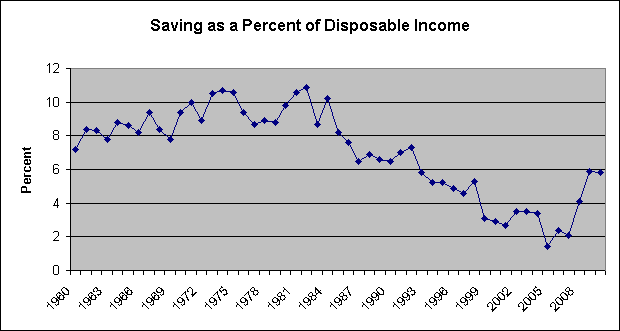October 19, 2011
In a bizarre article, the NYT told readers that, “economists have only recently devoted serious study to how a decline in housing prices affects consumer spending.” Actually economists have studied the effect of house prices on consumption for close to a century.
The housing wealth effect is a well-known concept in economics, not something that economists have just stumbled upon. It is usually estimated as being between 5-7 cents on the dollar. This implies the loss of roughly $7 trillion in housing wealth would lead to a drop in annual consumption of between $350-$490 billion, more than twice as large as the number cited in this article.
In fact, rather than being depressed consumption is still somewhat higher relative to income that was normally the case through the post-war period. Prior to the run-up of the stock bubble in the 90s, saving averaged more than 8 percent of disposable income. At 5 percent, the saving rate is still well below this level, meaning that consumption is high, not low. The NYT should have been able to find an economist who could have explained these facts.

Source: Bureau of Economic Analysis.
[Thanks Jay R. for the correction. I understand there is some dispute as to whether the housing wealth effect has long been known, as I claim. I encourage readers to go Google Scholar and see for yourself.]







Comments